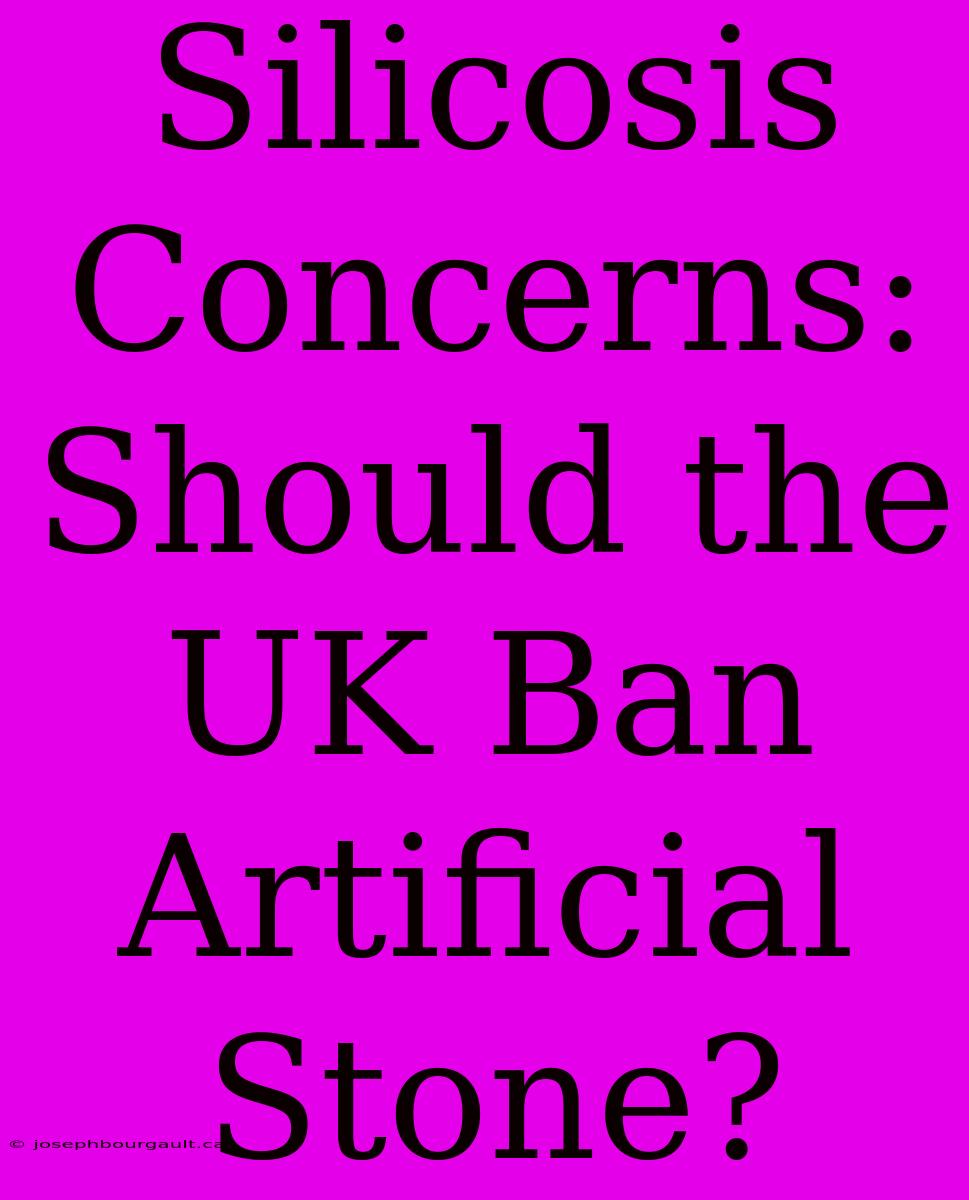Silicosis Concerns: Should the UK Ban Artificial Stone?
The Rise of Artificial Stone and the Silent Threat of Silicosis
Artificial stone, a popular choice for countertops and other surfaces, has gained immense popularity due to its durability, aesthetic appeal, and affordability. However, a growing concern surrounds the potential health risks associated with its manufacture and installation, particularly the development of silicosis.
What is Silicosis?
Silicosis is a serious lung disease caused by the inhalation of crystalline silica dust, a common component in the manufacturing process of artificial stone. This dust, when inhaled, can irritate and damage the lungs, leading to:
- Shortness of breath
- Coughing
- Chest pain
- Fatigue
In severe cases, silicosis can progress to fibrosis, where scar tissue forms in the lungs, making it increasingly difficult to breathe. Sadly, silicosis is irreversible and can even be fatal.
The Connection Between Artificial Stone and Silicosis
The manufacturing process of artificial stone, particularly those involving engineered quartz and resin-bonded aggregates, releases significant amounts of crystalline silica dust into the air.
Workers involved in:
- Quarrying of raw materials
- Stone fabrication and cutting
- Installation
are at high risk of inhaling this dust and developing silicosis. Even those working in showrooms and warehouses are not immune, as the dust can become airborne during handling and transportation.
Growing Concerns and Calls for Action
The UK has seen a rise in cases of silicosis linked to artificial stone, particularly amongst stone masons and fabricators. This has sparked calls for stricter regulations and a possible ban on artificial stone.
Advocates argue that:
- Current regulations are inadequate to protect workers from silica dust exposure.
- Banning or restricting artificial stone would be the most effective way to prevent further cases of silicosis.
- Investment in safer alternatives is crucial, such as using engineered materials that do not release silica dust.
The Industry Response
The artificial stone industry acknowledges the risks of silica dust exposure and emphasizes the importance of safe working practices. However, some argue that a ban would be too extreme and would impact jobs and the industry itself.
The industry is focusing on:
- Investing in dust control measures in factories and workshops.
- Providing workers with appropriate respiratory protection.
- Raising awareness about the dangers of silica dust exposure.
The Debate Continues
The debate surrounding artificial stone and silicosis is complex and raises important questions about the balance between public health, industry regulation, and economic impact.
Moving Forward: A Multi-pronged Approach
To address this growing concern, a multi-pronged approach is needed:
- Strengthened regulation: Implementing stricter limits on silica dust exposure in the workplace.
- Increased awareness: Educating workers, consumers, and industry professionals about the risks of silicosis.
- Safer alternatives: Encouraging the development and use of safer materials that do not pose a health risk.
- Compensation for workers: Providing adequate support and compensation for those who develop silicosis.
The health and well-being of workers should be prioritized. By taking decisive action, the UK can protect its citizens from the silent threat of silicosis and ensure a safer future for all.

